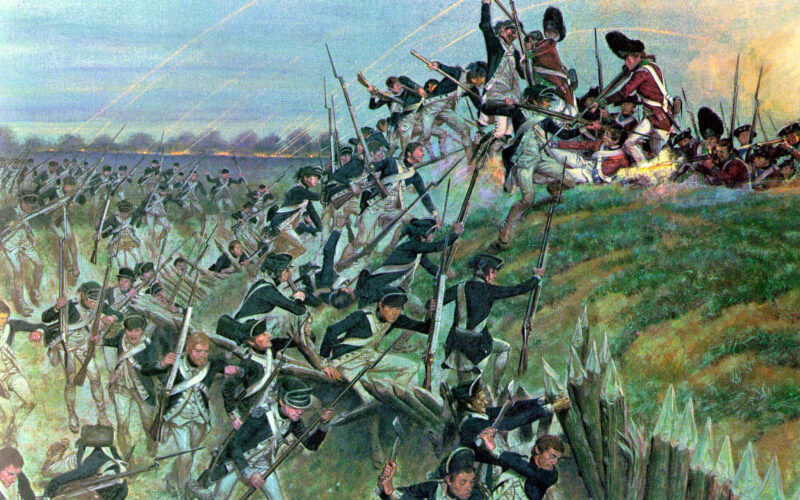The American Revolution was a political upheaval in the 18th century in which the 13 British colonies in North America declared their independence from British rule and formed the United States of America. It began in 1765 with resistance to new taxes and expanded to a full-scale war that lasted from 1775 to 1783. Key events of the Revolution include the Boston Tea Party, the Declaration of Independence, and the decisive American victory at the Battle of Saratoga, and also the Battle of Yorktown.
The war ended with the Treaty of Paris in 1783, which recognized the independence of the United States and established a new nation built on the principles of liberty, democracy, and equality. The American Revolution had lasting impacts on the world, including shaping the ideologies of the French Revolution and inspiring movements for independence and democracy in other countries.
An Overview of the American Revolution
The American Revolution was a significant event in world history, marking the end of colonial rule by Great Britain and the birth of the United States as a nation. It was a complex and often violent conflict that lasted from 1765 to 1783 and involved many different groups of people, including the American colonists, British authorities, Native American tribes, and African Americans.
The main causes of the American Revolution can be traced back to the mid-18th century, when Britain began imposing a series of taxes and regulations on the American colonies. The colonists, who had long enjoyed a degree of autonomy and self-governance, resented these new policies and saw them as an infringement on their rights as British citizens. Tensions between the colonies and Britain escalated, leading to the famous Boston Tea Party in 1773, in which colonists dumped 342 chests of tea, worth approximately 10,000 pounds, into the Atlantic Ocean to protest a tax on tea.
In response to the growing discontent in the colonies, Britain sent troops to the colonies in 1775, and the two sides clashed in the first battles of the Revolution at Lexington and Concord. The American colonists declared their independence from Britain in July 1776, and the Continental Congress adopted the Declaration of Independence, which was written by Thomas Jefferson. The Declaration listed the colonists’ grievances against Britain and articulated a new vision of government based on the idea of natural rights and popular sovereignty.
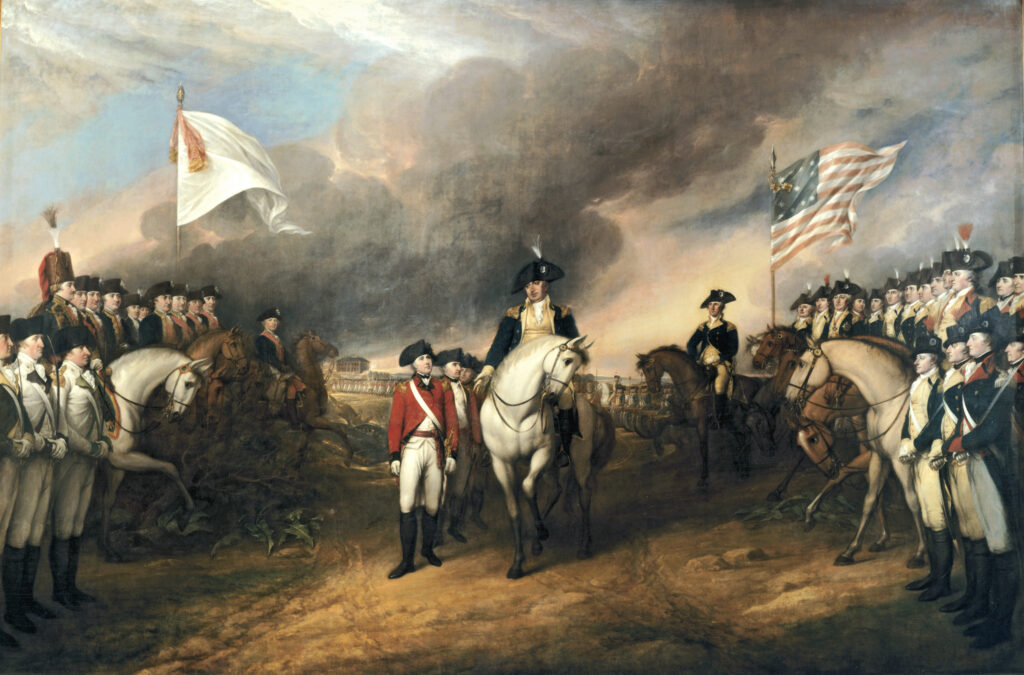
The American Revolution was a difficult and bloody conflict that lasted for eight years. Some of the key battles of the Revolution include Saratoga, which was a turning point in the war and helped secure French support for the American cause, and the Battle of Yorktown, which was the final major battle of the war and resulted in the surrender of British forces. The war ended with the Treaty of Paris in 1783, which officially recognized the independence of the United States and established its borders.
The American Revolution had far-reaching consequences, both in the United States and around the world. It inspired the French Revolution, which began in 1789 and led to the overthrow of the French monarchy and the establishment of a democratic republic. The ideals of the American Revolution, such as liberty, democracy, and equality, also influenced political movements in other countries and continue to shape American society today. The Revolution also established the United States as a new world power and marked a significant moment in the development of modern democracy.
The Battle of Yorktown
The Battle of Yorktown, fought in 1781 during the American Revolution, was a pivotal moment in the war and is considered to be the last major battle of the conflict. It took place near the Virginia town of Yorktown and was fought between the British army, commanded by General Lord Charles Cornwallis, and a combined force of American and French troops, commanded by General George Washington and the French General Comte de Rochambeau.
The battle began on September 28, 1781, when the combined American and French forces began a siege of the British-occupied city of Yorktown. The British were cornered and unable to receive reinforcements or supplies from the sea, as the French navy controlled the Chesapeake Bay and prevented British ships from entering. Over the course of several days, the American and French forces steadily closed in on the British, and on October 14, 1781, they launched a final attack.
The battle was fierce and intense, but in the end, the combined American and French forces were victorious. Lord Cornwallis, realizing that he was surrounded and outnumbered, was forced to surrender on October 19, 1781. The surrender of the British army at Yorktown was a significant turning point in the war, as it effectively ended major hostilities in the United States and led to the eventual recognition of American independence.
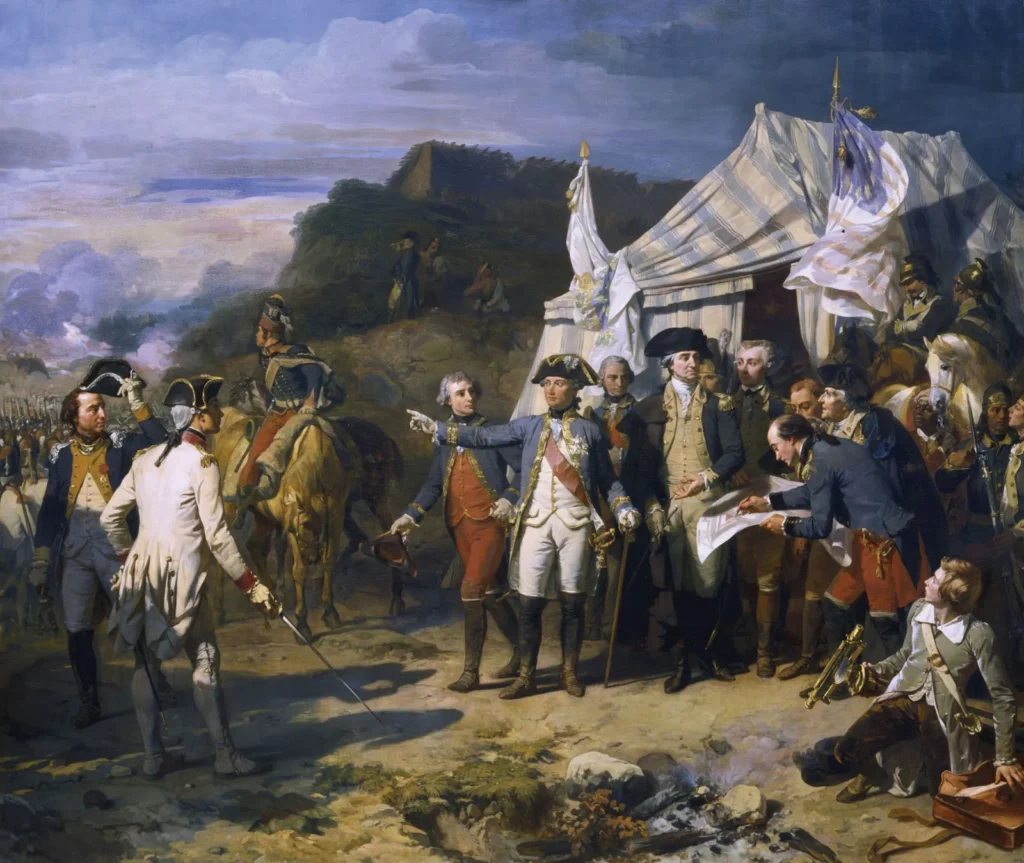
The Battle of Yorktown had far-reaching consequences, both in the United States and internationally. In the United States, it boosted morale and helped solidify support for the Revolution. Internationally, it was seen as a significant defeat for Britain, which had been considered one of the strongest military powers in the world. The Battle of Yorktown was a major factor in the negotiations that led to the Treaty of Paris in 1783, which officially recognized the independence of the United States and ended the American Revolution.
Phases of the Battle
The Battle of Yorktown had three main phases: the siege, the bombardment, and the assault.
- The Siege: The first phase of the battle was the siege, which lasted from September 28 to October 19, 1781. During this time, the combined American and French forces surrounded the city of Yorktown and effectively cut off supplies and reinforcements to the British army commanded by General Lord Cornwallis. Over the course of several days, the American and French troops gradually tightened their grip on the city and prepared for a final assault.
- The Bombardment: The second phase of the battle was the bombardment, which began on October 9, 1781. During this phase, the American and French forces bombarded the British defenses with artillery, attempting to weaken their positions and soften them up for a final attack. The bombardment lasted for several days and was intense and damaging, but the British held their ground.
- The Assault: The third and final phase of the battle was the assault, which took place on October 14, 1781. During this phase, the combined American and French forces launched a coordinated attack on the British defenses, hoping to break through and capture the city. The fighting was fierce, but in the end, the American and French forces were victorious, and the British were forced to surrender on October 19, 1781.
The Battle of Yorktown was a decisive moment in the American Revolution, as it effectively ended major hostilities in the United States and led to the eventual recognition of American independence. The battle demonstrated the effectiveness of the combined American and French military efforts and was a major factor in the negotiations that led to the Treaty of Paris in 1783, which officially ended the war.
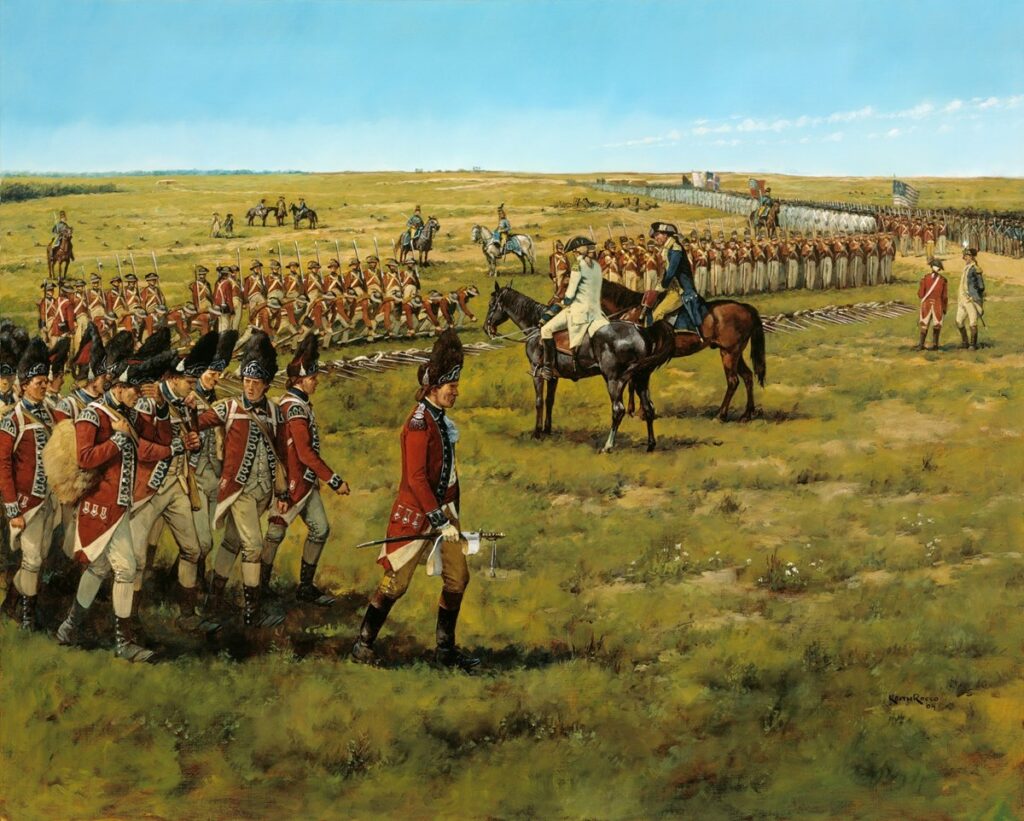
Aftermath
The aftermath of the Battle of Yorktown had far-reaching consequences for the United States and for the world. Some of the key outcomes of the battle include:
- Recognition of American independence: The surrender of the British army at Yorktown was a major turning point in the war, as it effectively ended major hostilities in the United States and led to the eventual recognition of American independence. The Treaty of Paris in 1783 officially ended the war and recognized the independence of the United States.
- Boost in American morale: The victory at Yorktown boosted American morale and helped solidify support for the Revolution. The American people saw that they could effectively stand up to the powerful British military and win, and this helped to inspire a sense of nationalism and patriotism in the newly formed country.
- International consequences: The Battle of Yorktown was seen as a significant defeat for Britain, which had been considered one of the strongest military powers in the world. The loss had international consequences, as it weakened Britain’s position in the world and led to a shift in the balance of power towards the United States and France.
- Influence on other independence movements: The American Revolution and the Battle of Yorktown had a significant impact on other independence movements around the world. The success of the American Revolution inspired other countries and colonies to seek their own independence, and the ideas of liberty and democracy that it embodied became key ideals in many other countries and movements.
- Changes in military tactics and strategy: The Battle of Yorktown was a major factor in the development of military tactics and strategy in the modern era. The successful siege tactics and coordination between the American and French forces set a new standard for military cooperation and strategy, and influenced military thinking and tactics for years to come.
Overall, the aftermath of the Battle of Yorktown had a profound impact on the United States and on the world, and its legacy continues to be felt to this day. The victory at Yorktown was a pivotal moment in the American Revolution, and helped to shape the course of history for generations to come.
Conclusion
In conclusion, the Battle of Yorktown played a crucial role in the outcome of the American Revolution. The cooperation between the American and French forces in this battle resulted in a decisive victory against the British army and ultimately led to the recognition of the independence of the United States. The impact of the Battle of Yorktown was far-reaching and had a lasting impact on both the United States and the world.
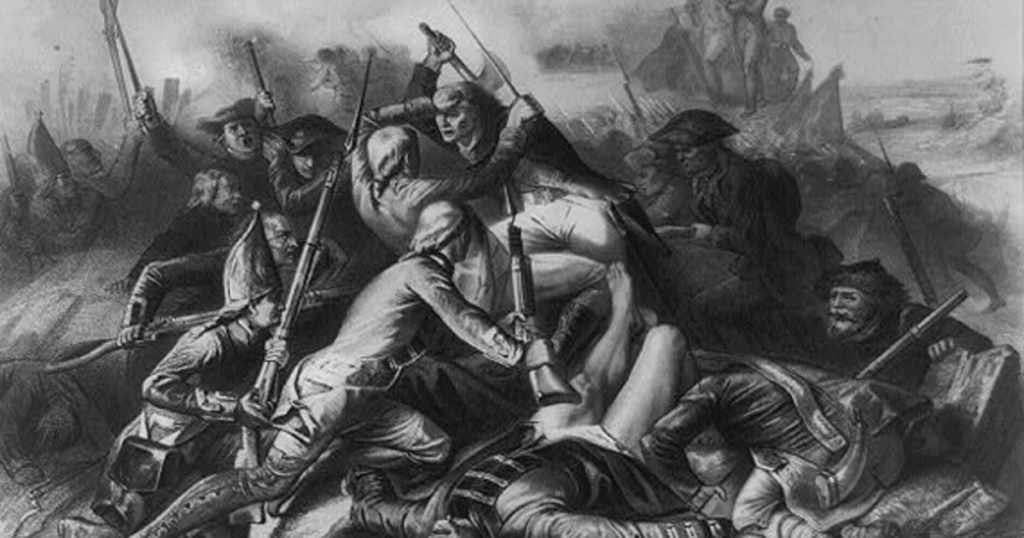
The victory boosted American morale, had international implications, and inspired other independence movements. The battle also marked a significant shift in military tactics and strategy, and its legacy continues to be studied and celebrated to this day. The Battle of Yorktown remains a pivotal moment in the history of the United States and the world, and its impact on the world and the formation of the United States cannot be overstated.

